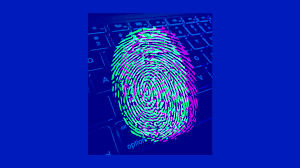Google Passkey: A Paradigm Shift

Google’s passkey is a groundbreaking login technique designed to eliminate the need for users to remember cumbersome passwords. Instead, it leverages biometric authentication, offering options such as facial recognition, fingerprint scanning, and screen lock PIN. This marks a significant departure from the traditional password-based approach, providing a more secure and user-friendly authentication process.
In a bold move towards enhancing online security, Google has introduced passkeys, signaling a transformative shift in user authentication. This innovative approach aims to address the limitations of traditional passwords, providing a more secure and convenient alternative.
Google Passkeys and The Need for Enhanced Authentication
With the ever-increasing reliance on digital technologies, online security has become a paramount concern. Cybercrime incidents are on the rise globally, exposing the vulnerabilities of traditional password-based authentication. Users often resort to easily guessable information, such as birthdays or pet names, making them susceptible to hacking attempts. The introduction of stronger authentication methods like two-factor authentication (2FA) and encryption has been crucial in addressing these challenges.
Google Passkey and its advantages

The adoption of Google Passkey comes with several advantages:
1. Protection Against Password-related Risks: Passkeys offer robust protection against common password-related risks and phishing attacks, ensuring a higher level of security.
2. Enhanced Security Compared to SMS Codes: Unlike one-time SMS codes that can be compromised by hackers, passkeys provide a more secure authentication method, reducing the risk of unauthorized access.
3. Prevention of SIM-swap Attacks: Passkeys add an extra layer of defense against SIM-swap attacks, a dangerous form of cybercrime that can lead to unauthorized access to accounts.
4. Non-Sharing of Private Keys and Biometrics: The use of private keys and biometrics for user verification ensures an additional layer of security, with this sensitive information never being shared, enhancing overall security in the future.
Technical Aspects of Google Passkey
Google’s passkeys combine the convenience of both biometric and passcode-based sign-in options. Users can set up unique passkeys for each device, operating system, or app they use. This involves storing a cryptographic private key on the device, while the corresponding public key is securely uploaded to Google.
During the login process, the device uses the private key to generate a signature, which is then authenticated and verified by Google using the public key. This process ensures secure and reliable user authentication.
Notably, the generated signature can only be shared with trusted Google websites and apps, preventing malicious websites from exploiting data through phishing techniques.
User Adoption and Potential Challenges
While the concept of passkeys has been deployed by companies like Apple, Microsoft, Shopify, and Paypal, Google’s adoption marks a significant transition into mainstream operations. However, for users accustomed to traditional password-based authentication, adapting to the passkey method may pose challenges. To ease this transition, Google will continue to offer the password option alongside the passkey. As users become more familiar with the new authentication method, the passkey is expected to gain widespread adoption.
The Bottom Line: Balancing Options and Security
Mass adoption of Google passkey technology may take time, but Google recognizes the importance of providing options. Password-based 2FA will continue to be available as an alternative method for users who may take time to adjust to the passkey approach. Google remains committed to closely monitoring and addressing compromised profiles that still rely on traditional password methods.
In the interim, the use of password managers is emphasized for maintaining online security. Password managers offer a centralized and encrypted storage system for all passwords, mitigating the risks associated with weak or easily guessable passwords.
The Demise of the Password: A Historical Perspective
The concept of passwords has evolved over the years, from ancient Roman usage to Shakespearean references. In the modern era, passwords govern nearly every aspect of our technological lives. However, their inherent vulnerabilities, highlighted by statistics such as the prevalence of passwords like “123456,” indicate the need for a paradigm shift in authentication methods.
The inventor of the computer password, Fernando José Corbato, introduced it in the 1960s for user identification rather than a high degree of security. With the advent of passkeys, a coalition of major tech companies, including Apple, Microsoft, and Google, is delivering a eulogy for the traditional password. The FIDO Alliance, with its Fast Identity Online standard, presents passkeys as a promising and viable successor to passwords.
Understanding Passkeys: A Revolutionary Authentication Method

Passkeys, developed by the FIDO Alliance, represent a cryptographic shift in user authentication. Unlike passwords, passkeys cannot be stolen through phishing, providing a higher level of security. Each time an account is accessed, a unique passkey is generated, eliminating the existence of a master key for all doors. This possession-based authentication model ensures that the cryptographic key is never shared with online services or accounts, residing solely on the user’s device.
Andrew Shikiar, the executive director of FIDO Alliance, emphasizes the fundamental change in user authentication, moving away from knowledge-based authentication to a possession-based model. This shift aims to make authentication a smaller and more seamless part of users’ daily routines.
The Future of Passkeys: Integration and Cybersecurity Benchmarks
Passkeys are not limited by the need for additional downloads or memberships; major browsers and operating systems from Apple, Google, and Microsoft have already integrated the procedure. This integration positions passkeys to become the new standard in the digital realm. Companies adopting passkeys are expected to set new benchmarks for cybersecurity, closing security gaps and providing a more robust defense against unauthorized access.
Embracing the Passkey Era

In conclusion, Google’s introduction of passkeys represents a significant step towards a more secure and user-friendly authentication method. While the transition may pose initial challenges for users accustomed to traditional passwords, the long-term benefits in terms of enhanced security and convenience cannot be overstated.
As the digital landscape evolves, passkeys are poised to become the new standard, ushering in an era where authentication is seamlessly integrated into our daily lives and makes way for the cryptographic passkey, ensuring a more secure and robust digital future.
60TH MUNICH CONFERENCE: INDIA’S EXTERNAL AFFAIR MINISTER S.JAISHANKAR ASTOUNDING BALANCING ACT